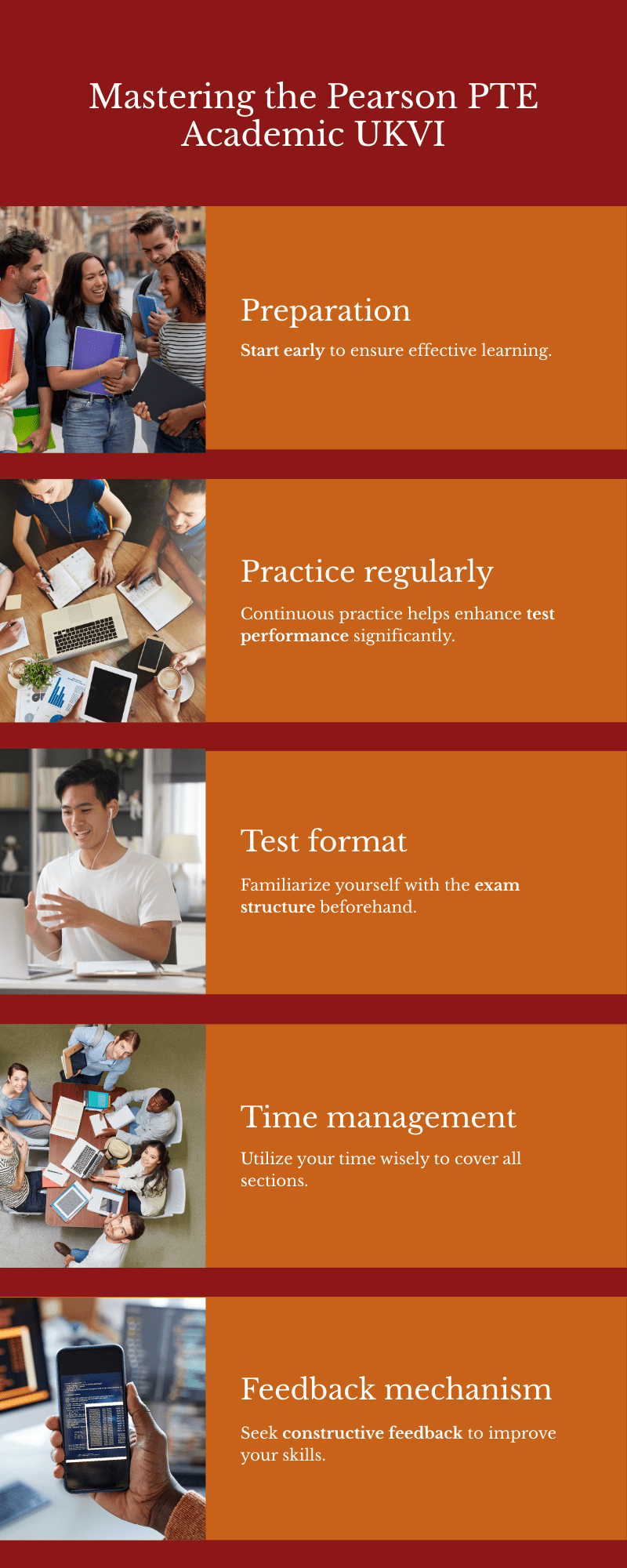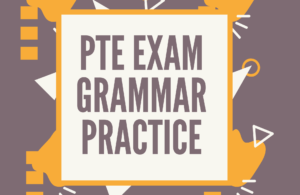The Pearson Test of English (PTE) Academic UKVI is a specialized English language proficiency exam tailored for individuals applying for visas, citizenship, or other immigration-related purposes in the United Kingdom.
Recognized by the UK Visas and Immigration (UKVI) agency as a Secure English Language Test (SELT), it assesses the ability of non-native English speakers to communicate effectively in academic and real-world settings.
As of August 2025, the PTE Academic UKVI has undergone significant updates, including new tasks, refined scoring mechanisms, and an extended Speaking and Writing section. These changes enhance its alignment with practical language demands while maintaining its rigorous academic focus.
This article provides a detailed guide to mastering the PTE Academic UKVI, covering PTE format, scoring, preparation strategies using freeptetest resources, test-day procedures, and the impact of the 2025 updates.
Whether you’re aiming for a student visa, work permit, or settlement in the UK, achieving a high score is crucial for success.
Overview of the PTE Academic UKVI
The PTE Academic UKVI is identical in content and format to the PTE Academic but is administered at secure Pearson VUE test centers to meet UKVI’s SELT requirements.
It evaluates four core communicative skills—speaking, writing, reading, and listening—along with enabling skills like grammar, vocabulary, pronunciation, and oral fluency.
The test is designed to reflect the English proficiency needed for academic environments, such as understanding lectures, writing essays, or participating in discussions, making it equivalent to a bachelor’s degree level of language use.
The test is computer-based, leveraging artificial intelligence (AI) for scoring, supplemented by human oversight for select tasks. Results are typically available within 2 business days (down from 5 days, thanks to 2025 updates), and scores are valid for two years. The PTE Academic UKVI is scored on a scale of 10–90, with minimum requirements varying by visa type. For example, a B1 CEFR level (common for student or skilled worker visas) typically requires at least 36 in each skill, while a B2 level may demand 51 or higher. A score of 65 or above is often considered a benchmark for academic and professional success.
Updated Test Format for 2025
The PTE Academic UKVI is divided into three main sections: Speaking and Writing (combined), Reading, and Listening, with an optional 10-minute break.
The 2025 updates, effective from August 7, have increased the total number of tasks from 52–64 to 65–75 and extended the Speaking and Writing section to 76–84 minutes, keeping the overall test duration at approximately 2 to 2.15 hours. Below is a detailed breakdown of each section, incorporating the latest changes.
Speaking and Writing Section (76–84 Minutes)
This integrated section, the longest in the test, now includes 35–45 tasks (up from 28–36) and features two new tasks introduced in 2025: Summarize Group Discussion and Respond to a Situation. It assesses the ability to produce spoken and written English in academic and professional contexts.
Key Tasks:
- Personal Introduction (1 task, unscored): Introduce yourself in 30 seconds after 25 seconds of preparation. This task is sent to institutions but does not affect your score.
- Read Aloud (6–7 tasks): Read a short text (up to 60 words) aloud, testing pronunciation and fluency. Now scored only for speaking (previously for speaking and reading).
- Repeat Sentence (10–12 tasks): Listen to a sentence (3–15 words) and repeat it exactly within 15 seconds, assessing listening and speaking accuracy.
- Describe Image (5–6 tasks, increased from 3–4): Describe a visual (e.g., graph, chart, or picture) in 40 seconds after 25 seconds of preparation, evaluating content organization and vocabulary.
- Re-tell Lecture (2–3 tasks, increased from 1–2): Summarize a 90-second lecture in 40 seconds, testing listening and speaking skills.
- Answer Short Question (5–6 tasks): Respond to a question with a single word or phrase in 10 seconds, now scored only for listening.
- Summarize Written Text (1–2 tasks): Condense a 300-word passage into a single sentence (5–75 words) in 10 minutes, assessing reading and writing.
- Write Essay (1–2 tasks): Compose a 200–300 word essay in 20 minutes, evaluated for structure, grammar, and originality (now human-scored).
- Summarize Group Discussion (2–3 tasks, new in 2025): Listen to a 3-minute multi-speaker discussion, take notes, and summarize verbally in 2 minutes after 10 seconds of preparation. This tests critical listening and speaking coherence.
- Respond to a Situation (2–3 tasks, new in 2025): Respond verbally to a real-life scenario (e.g., giving directions) in 40 seconds after 10 seconds of preparation, emphasizing tone and spontaneity.
These tasks use academic content, such as lectures or charts, and require clear, concise communication. The 2025 updates increase the section’s complexity, demanding quick thinking and natural responses.
Reading Section (29–30 Minutes)
The Reading section, unchanged in duration, includes 13–18 tasks based on authentic texts from academic sources like journals, books, or articles.
Key Tasks:
- Fill in the Blanks (Reading and Writing, 5–6 tasks): Drag words into blanks in a 300-word text, now scored only for reading.
- Multiple-Choice, Choose Multiple Answers (1–2 tasks): Select all correct options, with partial credit but penalties for incorrect choices.
- Re-order Paragraphs (2–3 tasks): Arrange jumbled paragraphs logically.
- Fill in the Blanks (Reading, 4–5 tasks): Select words from a dropdown to complete a text.
- Multiple-Choice, Choose Single Answer (1–2 tasks): Pick one correct option.
This section tests comprehension, vocabulary, and analytical skills, requiring efficient reading under time constraints.
Listening Section (30–43 Minutes)
The Listening section features 12–20 tasks based on audio clips, such as lectures, conversations, or presentations, with diverse accents.
Key Tasks:
- Summarize Spoken Text (1–2 tasks): Write a 50–70 word summary of a 60–90 second audio in 10 minutes, human-scored for content.
- Multiple-Choice, Choose Multiple Answers (1–2 tasks): Select correct options, with partial credit.
- Fill in the Blanks (2–3 tasks): Transcribe missing words from a transcript, now scored only for listening.
- Highlight Correct Summary (1–2 tasks): Choose the best summary of an audio.
- Multiple-Choice, Choose Single Answer (1–2 tasks): Select one option.
- Select Missing Word (1–2 tasks): Predict the final word(s) after a beep.
- Highlight Incorrect Words (2–3 tasks): Identify transcript errors.
- Write from Dictation (3–4 tasks): Type a heard sentence, with partial credit for accuracy.
This section assesses note-taking, accent comprehension, and spelling, with refined scoring in 2025 for nuanced evaluation.

Scoring and Results
The PTE Academic UKVI is scored on a 10–90 scale, with separate scores for each communicative skill (speaking, writing, reading, listening) and enabling skills (grammar, oral fluency, pronunciation, spelling, vocabulary, written discourse).
The overall score reflects comprehensive proficiency, while skill-specific scores highlight strengths and weaknesses.
The 2025 updates introduced more granular scoring, such as 0–6 points for essay traits, and expanded human review for five tasks, including Write Essay and Summarize Group Discussion, to ensure content authenticity.
Results are available within 2 business days via the Pearson online portal, a significant improvement from the previous 5-day timeline. Scores are valid for two years and can be sent directly to UKVI or institutions.
Minimum score requirements depend on the visa type: for example, 36 for B1-level visas or 51 for B2-level visas. A score of 65 or above is often considered a strong benchmark for academic and professional applications.
If unsatisfied with your score, you can retake the test after a 7-day waiting period, with no limit on attempts. Freeptetest diagnostics can help identify areas for improvement before retaking.
Test-Day Procedures and Requirements
To ensure a smooth test-day experience, familiarize yourself with Pearson VUE test center protocols:
- Identification: Bring a valid, government-issued ID (e.g., passport) matching your registration details. Without it, you will not be allowed to test.
- Personal Belongings: Leave all personal items (e.g., bags, phones, watches) in designated lockers, as they are prohibited in the testing room.
- Electronic Devices: Mobile phones, smartwatches, and other devices are banned to maintain test security.
- Arrival Time: Arrive at least 30 minutes early for check-in, which includes ID verification and security procedures.
- Test Environment: You’ll be assigned a computer with a headset in a secure, quiet room. Follow the proctor’s instructions to avoid disqualification.
Freeptetest offers guides on test-day preparation, including tips for managing stress and adhering to protocols.
Preparation Strategies with freeptetest
Mastering the PTE Academic UKVI requires targeted preparation, especially with the 2025 updates. Here are key strategies:
- Understand the Format: Study the 22 task types using freeptetest guides to grasp scoring criteria and expectations.
- Practice Mock Tests: Freeptetest’s timed simulations replicate the test environment, helping you build speed and familiarity with tasks like Summarize Group Discussion.
- Focus on New Tasks: Practice Summarize Group Discussion by summarizing multi-speaker podcasts; for Respond to a Situation, role-play scenarios like apologizing or giving instructions.
- Enhance Academic Skills: Use freeptetest essay prompts to improve writing structure and academic vocabulary. Practice listening to lectures with varied accents to boost comprehension.
- Time Management: Allocate time per task (e.g., 2 minutes for reading questions) using freeptetest practice tests to simulate real conditions.
- Review Enabling Skills: Focus on pronunciation and fluency for speaking tasks, and grammar for writing, using freeptetest feedback tools.
Aim for 4–8 weeks of preparation, dedicating daily time to each skill. Freeptetest’s scored practice tests provide detailed feedback to track progress and target weaknesses.
Impact of 2025 Updates
The August 2025 updates enhance the PTE Academic UKVI’s relevance:
- New Tasks: Summarize Group Discussion and Respond to a Situation test real-world communication skills.
- Increased Task Count: 65–75 tasks, with more speaking tasks for comprehensive assessment.
- Refined Scoring: Expanded human review and AI detection of memorized responses ensure fairness.
- Faster Results: Delivery within 2 business days, down from 5 days.
- Extended Speaking and Writing Section: Now 76–84 minutes, accommodating new tasks.
Freeptetest has updated its materials to reflect these changes, offering practice for new tasks and revised scoring rubrics.
Tips for Success
- Practice Authenticity: Avoid memorized responses, as 2025 updates penalize them. Use freeptetest to practice spontaneous answers.
- Simulate Test Conditions: Take full-length freeptetest mock tests to build stamina and time management.
- Review Score Requirements: Confirm the minimum score for your visa type (e.g., 36 for B1) using freeptetest guides.
- Manage Test-Day Stress: Arrive early, rest well, and use freeptetest relaxation techniques.
- Plan Retakes: If needed, schedule a retake after analyzing freeptetest diagnostics to improve weak areas.
Mastering the PTE Academic UKVI is achievable with thorough preparation and an understanding of its updated 2025 format. As a UKVI-approved SELT, it assesses academic English proficiency through 22 task types across three sections, with scores ranging from 10–90.
The 2025 enhancements, including new speaking tasks and faster results, make it a robust and efficient test for visa applicants. By leveraging freeptetest resources, candidates can practice effectively, target weaknesses, and achieve scores like 65 or higher to boost their chances of securing a UK visa for study, work, or settlement.
With dedication and strategic preparation, the PTE Academic UKVI can be your gateway to success in the UK.


